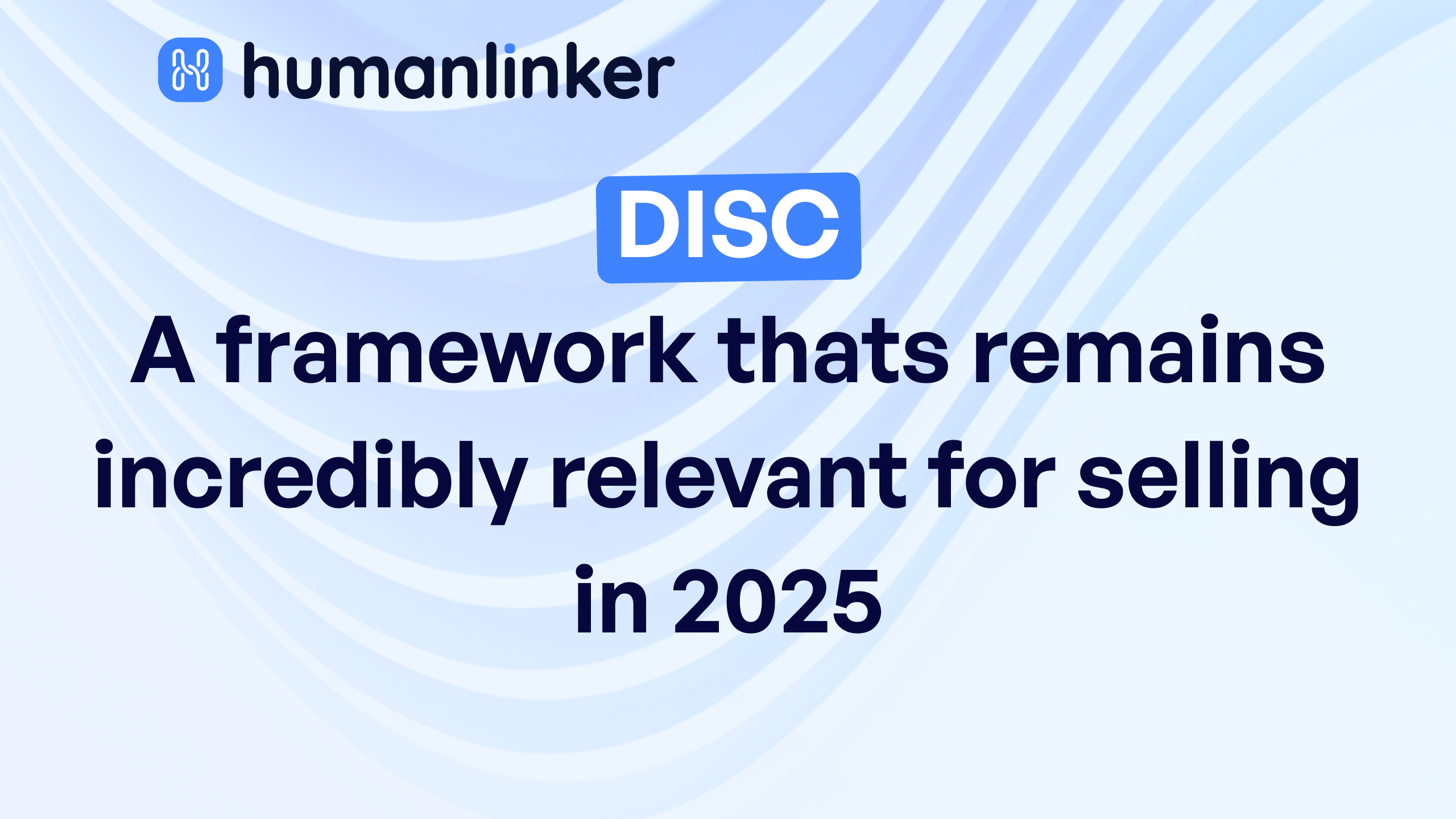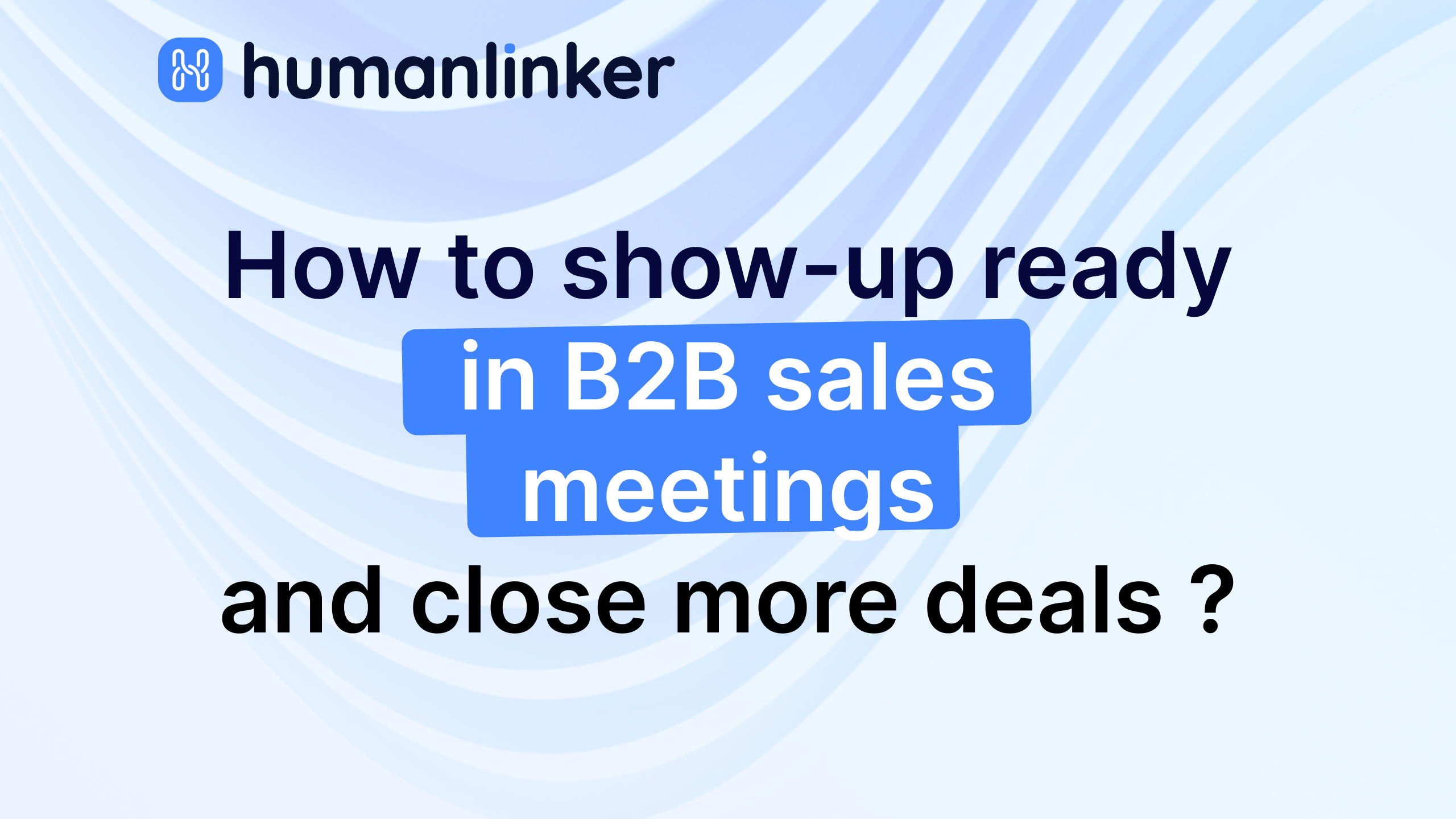Leveraging Personality Traits in Sales

In our journey towards becoming the best versions of ourselves at work, understanding our personality traits is pivotal. Personality tests like DISC, MBTI, or the Enneagram offer insights into not only ourselves but also the myriad personalities we engage with every day.
"It's not just about knowing who we are: it's about applying that knowledge for better outcomes."
This knowledge paves the way for enhanced teamwork, better communication, and sterling leadership. Successful teams comprise a mix of personalities that bolster each other. Identifying these variances aids both individuals and managers in leading more effectively.
1. Understanding DISC Analysis:

DISC Analysis is a personality tool based on the research of psychologist William Moulton Marston. It evaluates four primary traits: Dominance (D), Influence (I), Stability (S), and Compliance (C). These traits influence an individual's behavior, interactions, and worldview.
For a detailed dive into DISC, readers can explore: Understanding DISC Analysis.
- Dominance (D): Such individuals are direct, assertive, and thrive in leadership roles.
- Influence (I): Extroverted personalities that excel in relationship-building and persuasion.
- Stability (S): Signifies calmness, reliability, and a penchant for routine.
For those seeking to delve into their personality, there's a compilation of 7 tools to aid in the journey.
2. Matching Personality Traits with Positions:

Team dynamics are significantly influenced by the personalities within. Aligning personality traits with job roles can amplify performance, employee commitment, and satisfaction.
Matching these traits ensures employees are in roles that resonate with their strengths, elevating efficiency, productivity, and job appreciation. Additionally, it's about creating synergistic teams from diverse personality traits. For instance, a balanced team might include a leader (D), a communicator (I), a stabilizer (S), and a meticulous worker (C).
Company culture also plays a part. A change-embracing, innovative company might value Dominance (D) or Influence (I) traits more, whereas a stability-focused company might lean towards Stability (S) or Conscientiousness (C).
3. The Significance of the Work Environment:

The work setting deeply influences how personality traits are harnessed. A well-curated work environment can uplift productivity and well-being.
- Embracing Differences: Every personality type should feel respected and valued.
- Flexible Work Arrangements: Cater to diverse personality needs with options like remote work or flexi-hours.
- Diverse Roles and Responsibilities: Align roles with personality strengths.
- Tailored Development: Offer training programs based on personality types.
Maintaining a balance between teamwork and solo work is vital. Some thrive in teams, while others flourish in solitude. A robust work environment should cater to both.
4. Leveraging Personality Traits for Sales Success:

In sales, the right use of one's personality can be a game-changer. But understanding and adapting to the customer's personality is equally pivotal.
Self-awareness is the cornerstone. A salesperson with a Dominance trait (D) might be competitive but might need to temper aggression. Recognizing these nuances can shape a salesperson's approach.
Once salespeople grasp their traits, they can mold their selling style accordingly. Additionally, understanding the customer's personality is paramount. Here, tools like Humanlinker can be invaluable, offering insights into a prospect's personality using their LinkedIn profile.
Tailoring the sales pitch based on the customer's personality can significantly improve sales outcomes.
"Harnessing personality traits can offer a roadmap to improved performance and well-being in various settings."
Conclusion:
Harnessing personality traits, be it in the workplace or sales, can significantly elevate effectiveness across domains. From DISC Analysis to aligning roles with personality traits, there's a myriad of ways to optimize the power of personality. However, this journey demands a keen understanding of oneself and others and a willingness to adapt as per evolving needs and preferences.

AI in B2B sales: the top trends to improve conversion and customer retention




Find out in 30 minutes how Humanlinker can help you achieve your goals.




